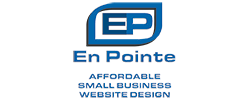Creating copywriting that sells for your business website, e-newsletter or brochure can’t be all that hard. All you need is to combine a good knowledge of your target market and their needs, with the ways you can meet these needs and the benefits you provide customers. Throw in an interesting writing style, some content that grabs at readers’ emotions, all the information your target market is looking for and, last but certainly not least, copy that engages potential customers and you should be OK!
It’s also wise to keep an eye on potential credibility killers – copywriting mistakes that can quickly have readers hitting the back or delete button or throwing your brochure in the bin. This article by Marcia Yudkin provides some good examples.
When it comes to hiring you with their hard-earned cash, many people behave like the proverbial Missourians: hands folded across their chests, they demand “Show me!” “Prove it!” You must earn their trust not only with what you say, but also in how you present your case.
To polish up a winning pitch, eliminate all the credibility killers below.
6 Common Credibility Killers
1. Typos or factual mistakes. According to seven studies performed by the Stanford University Persuasive Technology Lab, even the smallest mistakes affect people’s willingness to trust what you have written. Although errors have been known to slip by even professional proofreaders, you must do your best to eliminate typographical and spelling mistakes to maintain the trust of readers.
2. Appearing out of date. When a blog or website obviously hasn’t been touched in months, the individual or organisation behind it becomes less credible. Why? Because the world changes as time moves along, and we tend to trust those who keep in step. Something that implies that “October 2008” lies in the future or that cites Tony Blair as the current U.K. prime minister is jarring to us and takes the whole surroundings down a notch.
3. Exaggeration or hyperbole. I once spotted a company claiming to be the only healthy eating franchise. That was so grossly unlikely that I couldn’t possibly believe anything else they wrote. Take special care with dramatic adjectives like “revolutionary” or “unique,” because when someone realises you are actually offering the same-old same-old, your credibility tumbles into the gutter.
4. Ungrounded accolades. Google Adwords does not allow advertisers to use the words “best” or “#1” unless some third party, such as a magazine or contest, attests to that top status. Can your language pass that test? If you have superlatives and self-praise floating around in your copy without any grounding in “who says so,” discerning consumers sense something shifty or unreliable about you.
5. Seemingly too good to be true. Here you may have something provably true that surpasses what your audience is willing to believe. If so, you may need to understate the case so you don’t confront reader resistance. The firm Marketing Experiments, for example, reports a situation where a business-to-business marketer had to stop claiming a 638 percent improvement in return on investment because prospective clients did not believe that was possible, even though in fact it had taken place.
6. Asterisks or “small print.” Don’t put out something bold and outrageous only to take it back with a mealy-mouthed asterisk or legalistic small print. For instance, “free” means something costs nothing – zilch, literally. You slam enthusiasm and respect to a halt when you explain later that people need to pay $19.99 shipping and handling for the “free” item.
In most markets, people are skeptical, whether they already know you or are encountering you for the first time. People also prefer doing business with those who are above board, reliable and honest. Follow the credibility building best practices above, and you’re more likely to be perceived as trustworthy.
Veteran copywriter and marketing consultant Marcia Yudkin is the author of Persuading on Paper, Meatier Marketing Copy and 13 other books. Besides mentoring marketing departments in copywriting skills, she runs a one-on-one mentoring program that trains copywriters and marketing consultants in 10 weeks. Participants learn no-hype marketing writing skills and business savvy. For more information, go to http://www.yudkin.com/become.htm
